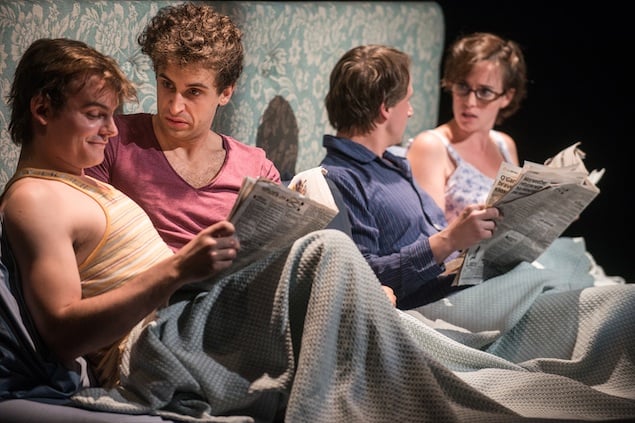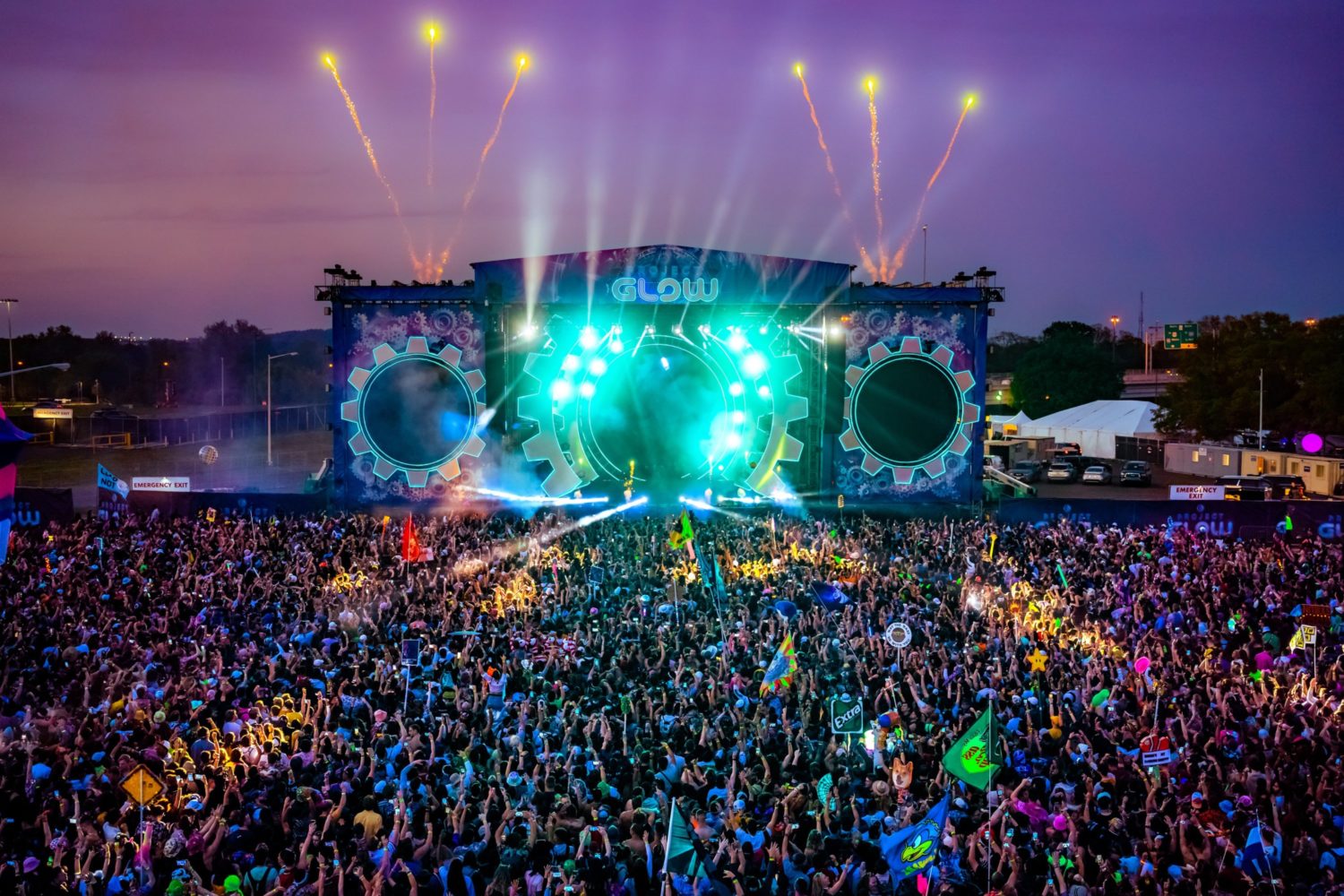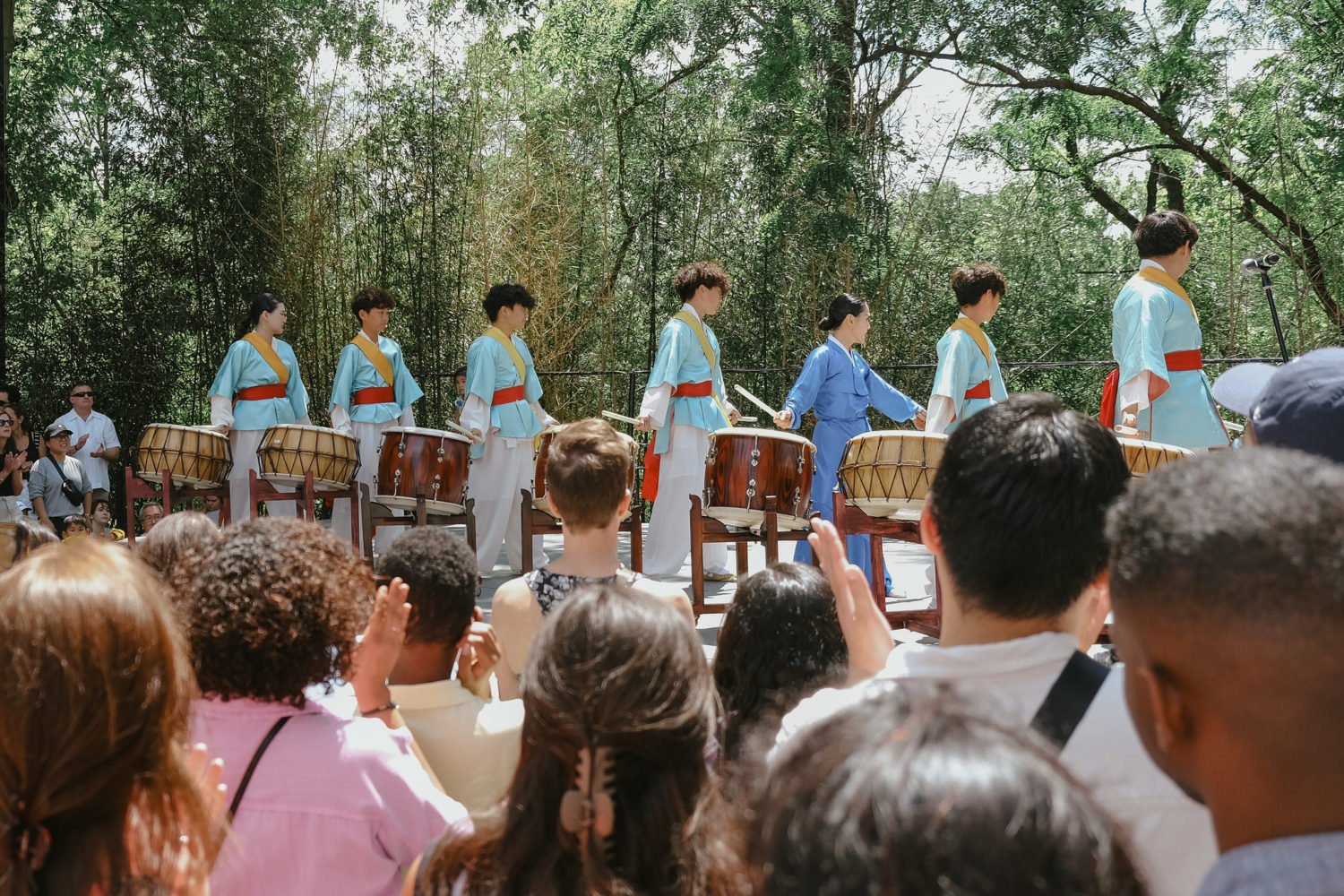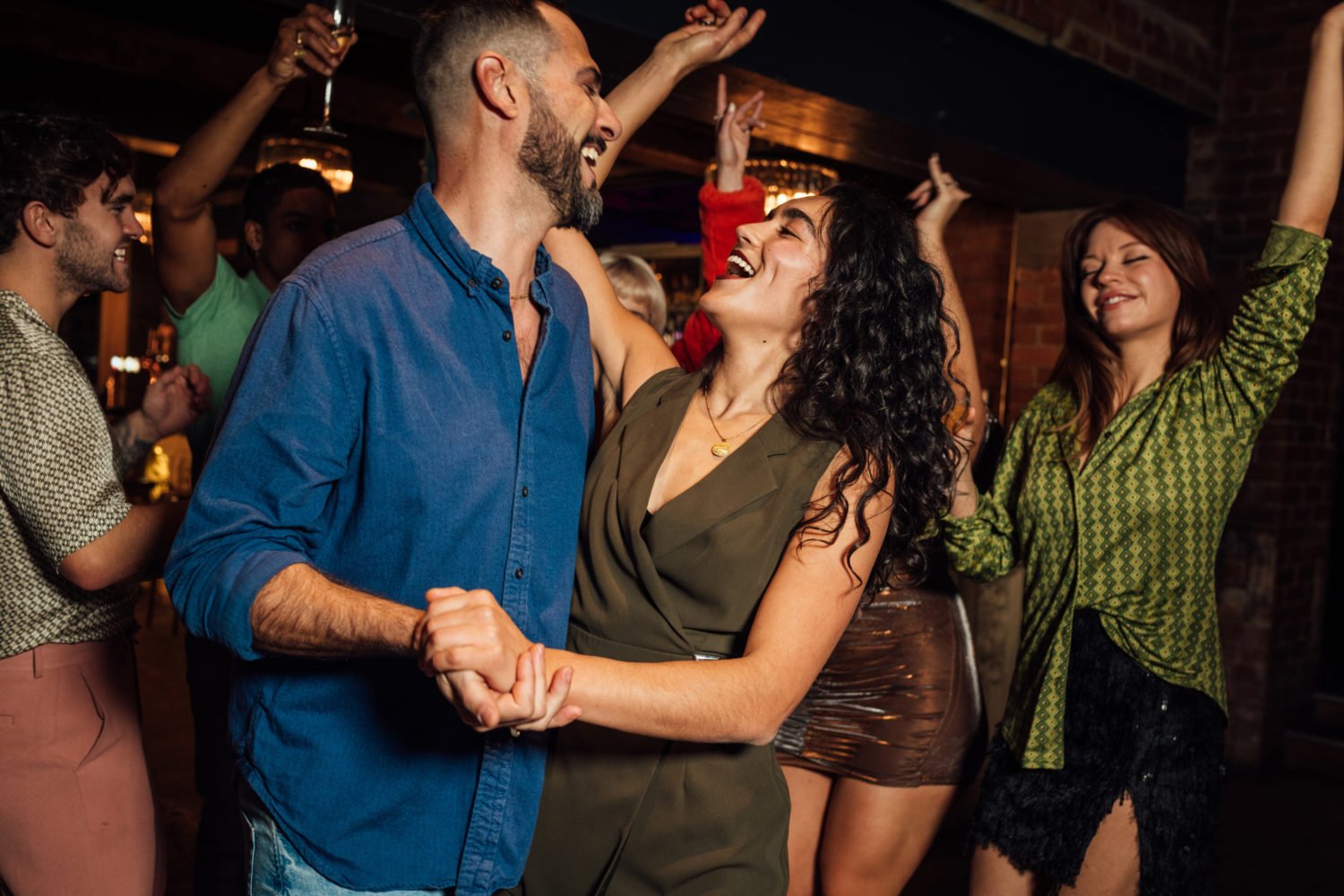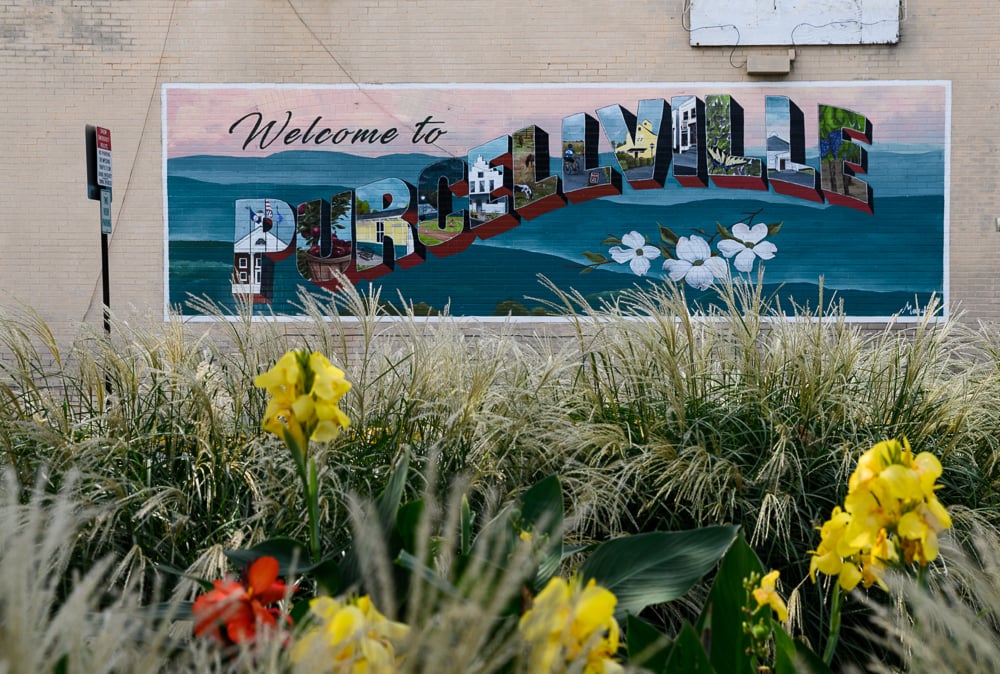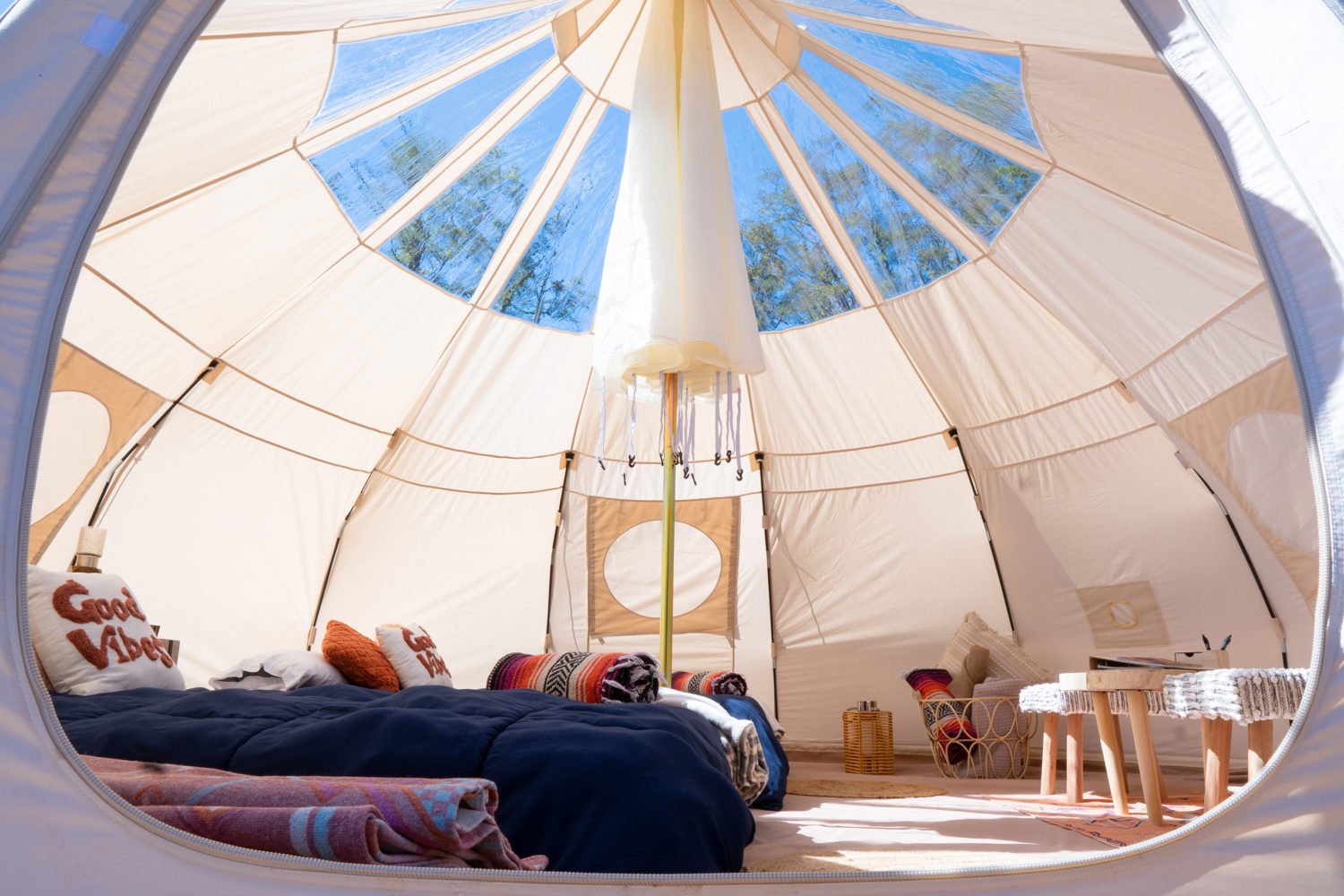
In Torch Song Trilogy, currently playing at Studio Theatre in a heartfelt production by Shakespeare Theatre’s Michael Kahn, it’s telling that protagonist Arnold’s drag queen persona sports a modest vintage dress and a 1940s, Andrews Sisters-style wig rather than sequins and size-12 platform heels. For all his brash stories and double entendres, Arnold, played impeccably by Brandon Uranowitz, is a true romantic at heart, and something of an anachronism in New York City’s pre-AIDS gay scene. He moons about his apartment, staring at a rotary phone that maddeningly refuses to ring, and in one terrifically funny scene, manages to form an unlikely emotional attachment to an anonymous guy who’s just manhandled him (and more) in the back room of a bar.
That bar shares a title (“The International Stud”) with the first act in Harvey Fierstein’s three-play trilogy, which won the 1983 Tony Award for Best Play and remains resolutely charming 30 years later. Bundled together, the three hour-long pieces trace Arnold’s evolution from a needy, angsty, wistful lost soul to a matriarchal tour de force, with enough heartbreak along the way to furnish a Dolly Parton record.
Kahn also manages to make each one quite distinct, theatrically: “Stud” is a series of monologues where Arnold regularly breaks the fourth wall; “Fugue in a Nursery” features conversations but is set entirely within the confines of a giant bed; and the last play, “Widows and Children First,” is set in Arnold’s home and is almost sitcom-like in its faux-naturalism.
The show lives and breathes with Uranovitz, whose nervy charisma carries the show from his dressing room to his ex-lover’s country house upstate to his apartment, beautifully decorated with rabbit stencils in a continuation of the “nursery” theme (the sets are by James Noone). In the opening scene, punctuated with torch songs delivered by the Billie Holiday-esque Ashleigh King, we first see Arnold fully made up, delivering pearls of wisdom to the audience like the following: “A drag queen is like an oil painting—you’ve got to take a step back to get the full effect.”
It’s impossible to think of Fierstein without thinking of his raspy, gravelly voice, and Uranovitz is as musical if not quite as throaty as the original Arnold, while in conversation with his beleaguered confidant, the unseen Murray, his tone frequently becomes pitchy and plaintive. Arnold’s loneliness is expressed by the fact that he never interacts with another character in the first act: a conversation with his new crush, Ed (Todd Lawson), is conducted by phone as the two sit in chairs on the same stage so the audience can see how their body language mirrors each other.
In “Fugue,” Arnold has grown up: He’s hardened and become less vulnerable, interacting much more powerfully with Ed, Ed’s girlfriend, Laurel (Sarah Grace Wilson), and Arnold’s new boyfriend, Alan (Alex Mills). As the scene plays out on top of a mattress, the different couples break apart and regroup, revealing how they’re all, literally and figuratively, in bed with one another.
“Widows and Children” flashes forward a few more years, with Arnold now in the unlikely role of mother to a teenage tearaway (Michael Lee Brown), and confronted at the same time by his own formidable Ma (Gordana Rashanovich). Redheaded and immaculate, Rashanovich carries herself with the stateliness of an ocean liner, even when rattled. She’s so obviously the source of Arnold’s splendor that watching the two of them bicker is fascinating, but Uranovitz also does a fantastic job of conveying the decades of hurt and isolation he’s experienced at her hand.
At a little over three and a half hours, this show’s commitment to a single character is unwavering, even as it touches on broad themes of sexuality, friendship, love, betrayal, and the impossible pipe dream of true love. Kahn’s Trilogy, moving, funny, and compelling through all three acts, reminds us that happiness is often most gratifying when it comes from self-fulfillment, whatever odd form that might happen to take.
Torch Song Trilogy is at Studio Theatre through October 13. Running time is about three and a half hours, with two intermissions. Tickets ($39 to $75) are available via Studio’s website.

